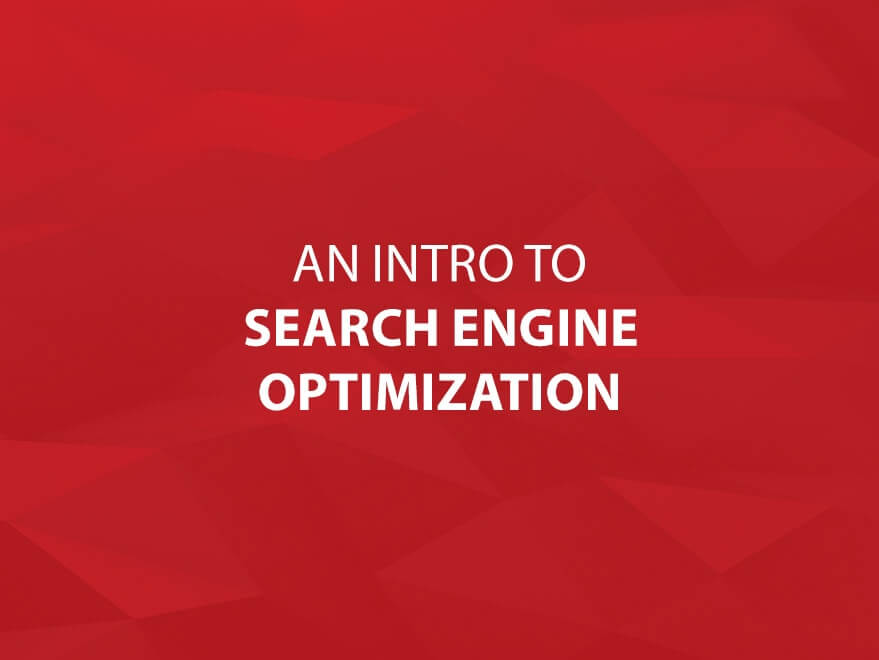An Intro to SEO


One of the things we get asked about all the time when working on new websites and development projects is, “What is SEO?” It seems that most people think SEO, or Search Engine Optimization, is some sort of wizard magic that nobody understands.
To a certain extent that is true, as nobody 100% understands how search algorithms work, which gives me the perfect opportunity to put on my wizard hat and yell, “you shall not pass,” as my coworkers try and walk past my desk. To help clear the smoke and mirrors surrounding SEO, I’m going to give you a very basic introduction to the concept.
What do search engines want?
Search engines want to serve the most relevant content that each searcher is looking for. This is kind of like a popularity contest. The more popular your content/website, the more valuable the search engines will assume your information is. SEO is all about making it easier for people and search crawlers to read your site.
So how do search engines read your site?
The search engines use bots that crawl your site for new and updated content. They have two purposes:
- To crawl your site by exploring links.
- To index what they find so that it can be retrieved for other users that may have similar searches. It is easy to see how your site is being indexed in Google by setting up Webmaster Tools.
How can I improve my results?
High rankings are critical to your business success for a couple of reasons - not only will high rankings give you the most visibility and site traffic, higher rankings also indicate that your customers trust your authority on the subject with which they are searching.
Each search engine has their own algorithm, so ranking for each has different strategies, but there are a few universal strategies that will almost always allow you to rank higher. The number of ways to improve your SEO is vast!
By far the biggest factor is to be empathetic to your audience. Make your pages for users first, not for the search crawlers. Ask yourself this: “If you were searching, would the page/content that you’ve created actually be valuable and useful?”
Basically, think about your own search patterns. I like to boil down to two main searches on the internet.
- Searches for Transactions like, “Where can I buy a Fender Stratocaster”, “Cheap flights to Hawaii”
- Searches for Information like “PlayStation 4 vs. Xbox One” and “When is the next full moon”
Both searches have value, but are in different stages of the purchase cycle. If I’m looking for information and your link takes me directly to a shopping cart to purchase your product, I will probably find your result less valuable and click the back button or effectively “bounce” from your site.
I like to try and think about questions we’re asked often and try and create a useful blog post or information to help answer those questions.
Some Helpful Suggestions
Because there are so many ways to try and improve your organic search results, this post could be very long, so I’m only touching on the general aspects of SEO. I may write a few more advanced techniques in later posts, but in the meantime, here are few other things that you can do to make your site more easily found in search engines.
- Making sure that every page of your site is reachable from at least one link in your site - Remember crawlers navigate through links on your site. If a page doesn’t link from anywhere, the crawlers won’t necessarily find it for the search index.
- Your title and ALT tags are all relevant and descriptive.
- Create clean, user friendly URL’s and don’t duplicate content.
- Produce fresh, useful content.
- Don’t bury content in images and flash, videos, etc. - The search engines don’t do a great job of indexing content from this media. If you have a video on your site, you can help let bots know what is in the content with a transcript.
Investing in SEO can have exceptional rates of return for your organization, but it requires a lot of time and commitment. If you want some help or have some questions, please leave them in the comments section below or Feel Free to Give Us a Call.
If you enjoy our Web Blogs, be sure to subscribe to our Core Web Newsletter!
And as always, Thanks for Reading!
Kyle Mayer







Comments